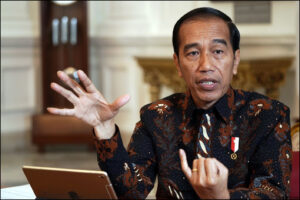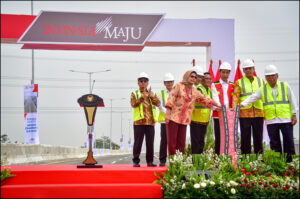Social Disparity My Biggest Worry: Joko
In a recent interview with President Joko Widodo, he expressed his biggest concern for the nation – social disparity. The widening gap between the rich and the poor has been an ongoing issue, and Joko believes it poses a significant threat to Indonesia’s progress. This article will delve into the reasons behind this escalating problem and explore potential solutions to alleviate social inequality in our society.
The Root Causes of Social Disparity
Social disparity in Indonesia is deeply rooted in various factors that have persisted over time. Understanding these underlying causes is crucial in order to devise effective strategies for addressing this pressing issue.
1. Economic Inequity:
A primary factor contributing to social disparity is the vast economic inequity within our society. The concentration of wealth among a small elite exacerbates the divide between the rich and the poor. Limited access to resources, opportunities, and services further perpetuates this inequality, leaving marginalized communities struggling to break free from their circumstances.
2. Education Divide:
Access to quality education plays a pivotal role in determining an individual’s prospects for social mobility. Unfortunately, educational opportunities are not distributed equitably across Indonesia. Rural areas suffer from inadequate infrastructure and lack of qualified teachers, hindering children’s educational development. As a result, those living in poverty face significant barriers in acquiring necessary skills for upward mobility.
3. Regional Disparity:
Another prominent factor contributing to social disparity is regional inequality. There exists substantial variation in development between different provinces and rural-urban areas. The concentration of resources within major cities leaves smaller regions deprived of essential infrastructure, healthcare facilities, and economic opportunities. This imbalance ultimately widens the gap between regions and amplifies existing social disparities.
The Impacts of Social Disparity
The consequences of social disparity are far-reaching and affect individuals, communities, and the nation as a whole. It is essential to comprehend these impacts to recognize the urgency of addressing this issue systematically.
1. Limited Social Mobility:
Social disparity restricts upward mobility, making it extremely challenging for individuals from disadvantaged backgrounds to improve their living conditions. This perpetuates a cycle of poverty that prevents these individuals from realizing their full potential and contributing significantly to society.
2. Unequal Access to Resources:
The unequal distribution of resources results in limited access to basic necessities such as healthcare, clean water, and sanitation for marginalized communities. This jeopardizes their well-being and hampers their ability to thrive in all aspects of life.
3. Social Tension:
Widening social disparities create an environment ripe for social tension and unrest. When a significant portion of the population feels marginalized and excluded from economic opportunities, frustration and disillusionment can lead to social unrest, potentially destabilizing the nation.
Promoting Social Equality: Potential Solutions
Addressing social disparity requires multifaceted strategies aimed at leveling the playing field and providing equal opportunities for all Indonesians.
1. Strengthening Education:
To bridge the education divide, comprehensive reforms must be implemented throughout the country. Investing in quality education infrastructure, enhancing teacher training programs, and providing scholarships for students from disadvantaged backgrounds will empower individuals with knowledge necessary for socioeconomic advancement.
2. Equitable Resource Allocation:
Ensuring equal distribution of resources is crucial for reducing regional disparities. By directing resources towards underserved regions, including infrastructure development, healthcare facilities, and job creation initiatives, the government can mitigate social inequality and promote balanced growth across the nation.
3. Encouraging Inclusive Economic Policies:
Implementing inclusive economic policies that prioritize job creation and entrepreneurship in sectors that benefit all Indonesians can play a significant role in narrowing the wealth gap. This requires fostering an environment conducive to small and medium enterprises (SMEs), providing training programs, facilitating access to credit, and promoting fair competition.
The Path to an Equitable Society
Addressing social disparity is a long-term endeavor that requires collective effort from various stakeholders. President Joko Widodo acknowledges the severity of this issue and has taken several steps towards realizing a more equitable society. However, sustained commitment from policymakers, civil society, businesses, and citizens is necessary to effect lasting change.
As Indonesians, it is imperative for us to recognize that the progress of our nation hinges on how we address social disparity. By championing inclusive policies, advocating for quality education for all, and striving for equitable resource allocation across regions, we can pave the way towards a more just and prosperous Indonesia.






